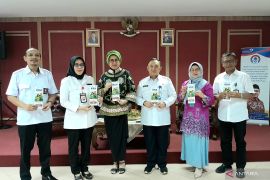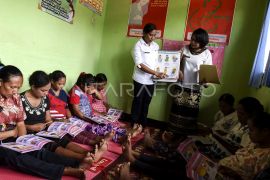"If we look at the Indonesian Nutrition Status Survey (SSGI) and the Indonesian Toddler Nutrition Status Survey (SSGBI), it appears that nutrition in children has not been evenly distributed," head of BKKBN Hasto Wardoyo stated in Jakarta, Wednesday.
Wardoyo noted that nutritional fulfillment in Indonesia had not been evenly distributed, as was apparent from the very high stunting rates in some areas, but there were also some other regions with low stunting prevalence of below 14 percent.
The agency head remarked that the uneven stunting rate was due to low level of education on nutrition. In some areas, some families give sugar water or tea as a replacement for breast milk in babies under six months of age.
"Drinks, like iced tea, could hamper protein and vitamin absorption. We must change the consumption pattern in many families," he emphasized.
For various reasons, children who do not want to be breastfed were given sweet drinks containing high levels of sugar to increase their appetite.
On the other hand, the consumption of unhealthy snacks, such as instant noodles, is used as a practical alternative to meet the children's nutritional requirement in order to make them feel full.
Related news: BKKBN's stunting handling to focus on people with uninhabitable homes
Hence, in 2023, the government will start raising awareness of the importance of providing animal protein and the use of local foods, such as moringa leaves, eggs, and fish as well as other local foods to be processed into healthy food for children.
"Parents can at least buy one egg per day to avoid stunting. Use the money to buy eggs instead of instant noodles," Wardoyo stated.
He also pointed out that stunting remained a complex problem despite the government's specific interventions, such as giving blood-added tablets to teenagers and pregnant women and establishing a Healthy Kitchen for Overcoming Stunting (Dashat) to set an example for complementary food (MPASI) for children.
Hence, the effort to overcome stunting in each region cannot be generalized. The severity of stunting is also closely related to access to sanitation and clean water, uninhabitable housing, and parenting style for which information had not been disseminated properly, Wardoyo stated.
The latest audit data on stunting cases shows that tuberculosis (TBC) has contributed to widening the potential for stunting in children.
“Each region has its own specific problems. Therefore, our efforts should consider the local problems. The regulation cannot be applied to all regions," he stated.
Related news: Ensuring healthy pregnancy could curb stunting: BKKBN
Related news: Jokowi attributes reduction in stunting prevalence to parties' work
Translator: Hreeloita Dharma S, Resinta S
Editor: Yuni Arisandy Sinaga
Copyright © ANTARA 2023












